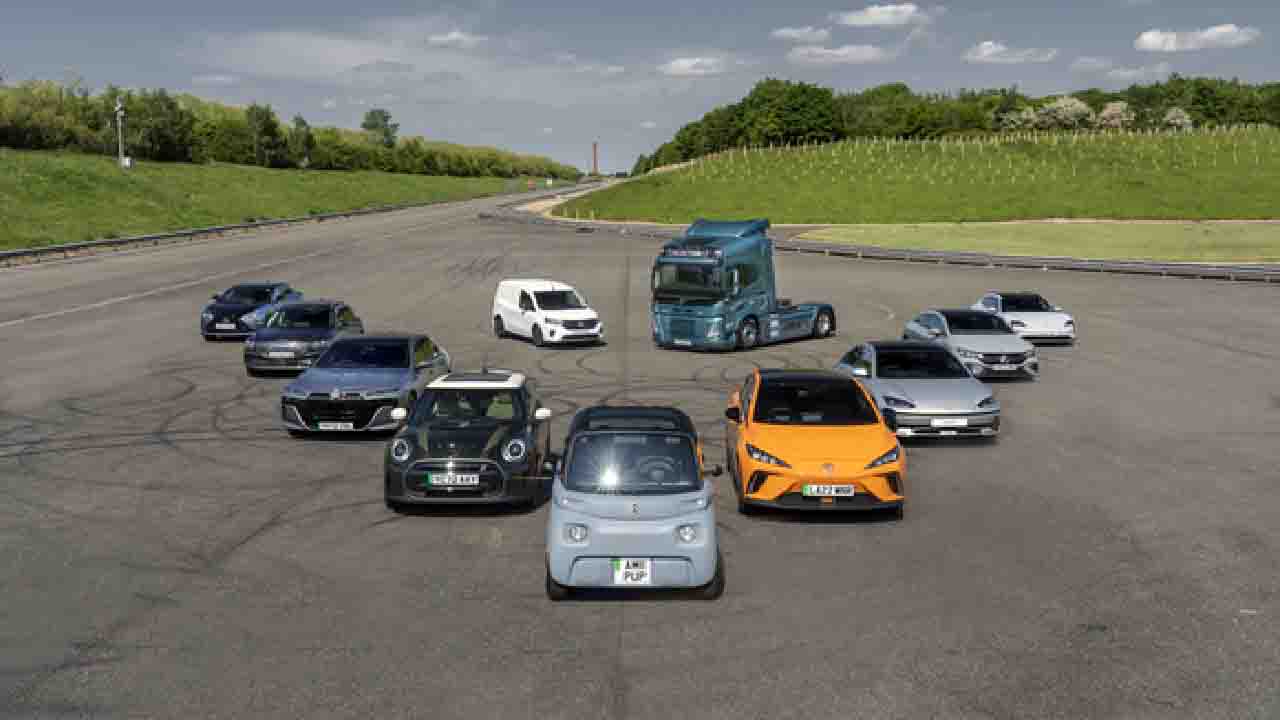England (Common Wealth) _ Due to manufacturers’ commitment to helping the UK achieve its goal of becoming the first major auto market to go emission-free, drivers in the country have seen their choice of battery electric car models treble in the previous five years.
The number of battery electric car models available to British drivers has quadrupled over the past five years as automakers commit to helping the UK achieve its goal of being the first major market for zero-emission vehicles.
In comparison to just 21 in 2018, there are already almost 80 “electric picks” available across all vehicle segments, ranging from ultra-compact urban commuter vehicles to versatile people carriers, and everything in between. Consequently, roughly one in four types of automobiles is a battery electric vehicle (BEV) that is available.
With new BEV registrations up by more than a quarter (25.6%) from this time last year, the wide range of vehicles has encouraged more than 3.7 million drivers to make the switch.2 Despite the tremendous global economic challenges of the last three years, manufacturers have continued to invest billions in both bringing new EVs to market and producing them in Britain. The selection of EVs that are currently available in showrooms is the result of these long-term commitments.
In addition to the vast array of BEV models, drivers seeking to reduce their carbon footprint while driving can select between 94 plug-in hybrid (PHEV) and 42 hybrid (HEV) models, making electrified vehicles nearly two-thirds of the market of all models on the market.
Those who switch to an all-electric lifestyle can do so with growing assurance. Battery range has increased as technology has advanced. The typical range of an electric vehicle is currently 236 miles, but new models that will hit the market for the first time in 2023 will have a range of approximately 300 miles, or about three times the typical weekly mileage. Additionally, there are 3 models with ranges of more than 450 miles.
Along with these other vehicles, Britain is also decarbonizing its transportation system. There are already 20 models of electric trucks, 23 models of electric vans, 14 models of zero-emission buses running on electricity or hydrogen, and UK as the country moves closer to 2035, when all non-zero emission vehicles weighing less than 26 tonnes will no longer be sold.
No matter where they live, all drivers must be able to take advantage of the electric switch, thus there must be a wide range of reasonable, dependable charging solutions available, especially for those who cannot access home charging. More than £2 billion has already been pledged by the UK government to expand the availability of public charging stations. The Zero Emission car Mandate would set binding targets for car sales and the installation of charge points, which will speed infrastructure development and encourage more people to switch to electric vehicles.
It will be crucial to increase the appeal of using electricity equitable. This can be aided by the implementation of a fair and progressive Vehicle Excise Duty regime, a tax system that supports company drivers, other incentives for private buyers, and, last but not least, by creating a level playing field by lowering the VAT at public charging stations to the same level as charging at home.








